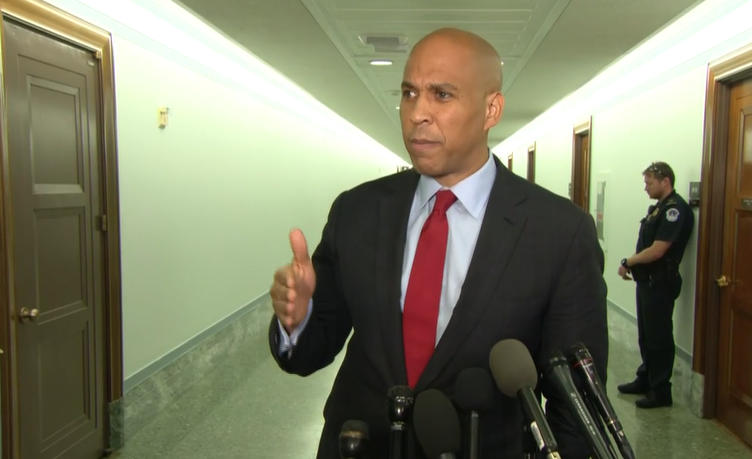One of the First Beneficiaries of First Step Act to be Booker’s State of the Union Guest

One of the First Beneficiaries of First Step Act to be Booker’s State of the Union Guest
Edward Douglas, released from federal prison on January 10 thanks to First Step Act, was serving a life sentence for selling drugs
WASHINGTON, D.C. – A formerly incarcerated individual just released from prison who was serving a lifetime sentence for a low-level drug crime will be U.S. Senator Cory Booker’s (D-NJ) guest for tonight’s State of the Union address.
Edward Douglas, of Chicago, was sentenced to life in prison in 2003 for selling 140 grams of crack cocaine – about the weight of a baseball. He is one of more than 2,000 prisoners eligible for release now thanks to much-needed fixes included in a sweeping criminal justice overhaul that was signed into law in late December. Edward was released from federal prison on January 10.
“As my friend Bryan Stevenson says, ‘Each of us is more than the worst thing we’ve ever done,’” Booker said. “Edward’s experience illuminates the deep injustices that exist within our broken criminal justice system – a system that preys upon our most vulnerable communities – the poor, the mentally ill, people of color. Edward’s story also shows our capacity for redemption and how the First Step Act is changing people’s lives. I’m looking forward to meeting Edward and talking with him about his experience and what else we can do to fix the remaining injustices within the system.”
“This isn’t just about me,” Douglas said. “I was one of the first ones to benefit from the First Step Act, but there are people right now that are still locked away for harsh penalties that far outweigh the crimes they committed. I hope that my story can send a message to lawmakers about how unfair our criminal justice system is, and hopefully spur additional reforms.”
The criminal justice overhaul, called the First Step Act, made retroactive a 2010 law which reduced the egregious sentencing disparities between crack and powder cocaine – disparities that overwhelmingly and disproportionately affected African-Americans. It also eliminated the life sentence penalty for “three strikes” offenders and gave judges greater discretion to circumvent mandatory minimum sentences when warranted.
Booker was a key architect of the landmark bill, which passed the Senate on December 18 and was signed into law on December 21. He was instrumental in adding key sentencing provisions to the package after opposing the House-passed version of the First Step Act first released in May 2018.
In addition to the sentencing provisions included in the final bill, Booker also successfully fought to include provisions that effectively eliminated the solitary confinement of juveniles in federal supervision and the shackling of pregnant inmates. The bill also includes provisions that require healthcare products be provided to incarcerated women, another Booker priority.
Driven by his experience living and working in Newark and serving on its city council and as its mayor, Booker has made reforming our broken criminal justice system a key legislative priority during his time in the Senate. Over the past five years, Booker has introduced numerous criminal justice reform proposals, including: the REDEEM Act, the CARERS Act, the PRIDE Act, the MERCY Act, the Fair Chance Act, the Equal Justice Under Law Act, the Gideon Act, the Dignity for Incarcerated Women Act, the Reverse Mass Incarceration Act, and the Marijuana Justice Act.









